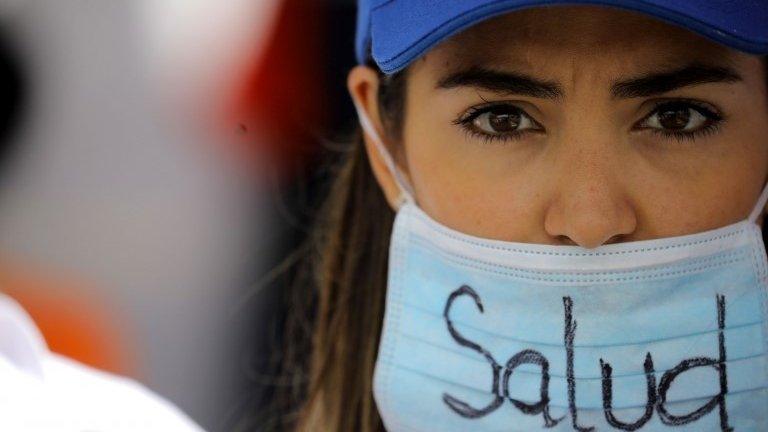Venezuela crisis: Guaido rejects talks with Maduro
- Published
Who's really in charge in Venezuela? The BBC's Paul Adams explains
Venezuelan opposition leader Juan Guaidó has rejected an offer of talks from President Nicolás Maduro amid an ongoing power struggle between the two.
Mr Guaidó declared himself "acting president" on Wednesday, a move that has been recognised by several countries, including the US.
But Mr Maduro accused him of mounting a coup and cut off diplomatic ties with the US in response.
A UN Security Council meeting on the crisis is due to be held on Saturday.
President Maduro was sworn in for a second term earlier this month, after polls marred by an opposition boycott and vote-rigging claims.
However, the National Assembly argued that the post of president was vacant because the election was not fair, and that Mr Guaidó, as head of the National Assembly, should take over as acting president.
Tens of thousands have taken part in anti-Maduro protests, angry at years of economic freefall.
Are you in Venezuela? Email your story to haveyoursay@bbc.co.uk
The international community is split on whether to recognise Mr Maduro's government.
On Friday, Mr Maduro said he was ready to talk to his rival - but Mr Guaidó said he rejected "fake dialogue" and said he would consider offering him amnesty.
At a rally in east Caracas, Mr Guaidó urged his supporters to keep protesting if, as some fear, he gets arrested.
Mr Maduro has so far retained the support of the country's military, but Mr Guaidó has asked them to "put themselves on the side of the Venezuelan people" and back him instead.
He has also called for major demonstrations demanding Mr Maduro's resignation to be held next week.
Why is Maduro unpopular?
Venezuela is in economic crisis - hyperinflation and shortages of basic essentials has hit its population hard and caused millions to flee.
Mr Maduro has faced internal opposition and ongoing international criticism for his human rights record and handling of the economy.
Thousands attended a rally in Caracas on Wednesday against President Maduro
Mr Guaidó said on Wednesday that the country's constitution allows him to take power because Mr Maduro's presidency is illegitimate.
He has promised to lead a transitional government and hold free elections.
Who is backing whom?
The US, more than a dozen Latin American countries, Canada and the UK have backed Mr Guaidó after he said he was the legitimate president.
France, Germany and Spain say they will recognise Mr Guaidó as president if elections are not called within eight days.
On Saturday, the US is expected to demand a UN Security Council statement recognising Venezuela's National Assembly as the country's "only democratically elected institution", Reuters reports.
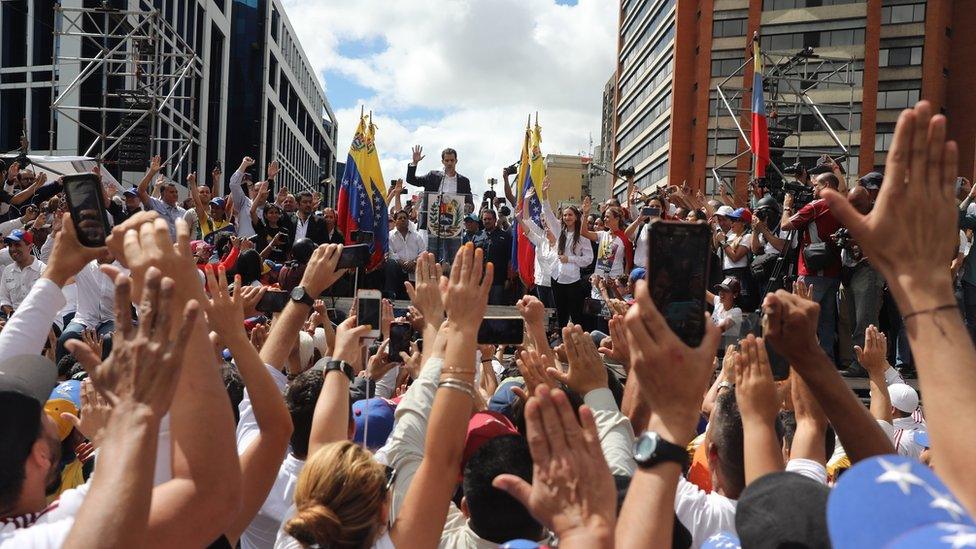
Mr Guaidó declared himself "acting president" on Wednesday
However Russia - a UN Security Council member - has condemned foreign support for Mr Guaidó, saying it violates international law and is a "direct path to bloodshed".
On Friday, Russian Foreign Minister Sergei Lavrov denounced US policy toward Mr Maduro as "destructive".
According to Reuters, Russian military contractors have been flown secretly into the country to provide security for the president, external.
China, Mexico and Turkey have also publicly backed Mr Maduro.
Meanwhile, US Secretary of State Mike Pompeo has appointed a veteran former diplomat as his envoy to deal with the crisis in Venezuela.
He said Elliott Abrams would be responsible for all US efforts to restore democracy in Venezuela.
Mr Abrams is a prominent neo-conservative who has long argued for an activist foreign policy to spread American values around the world.
He served as US Assistant Secretary of State for Inter-American Affairs in the 1980s under President Ronald Reagan.
- Published24 January 2019
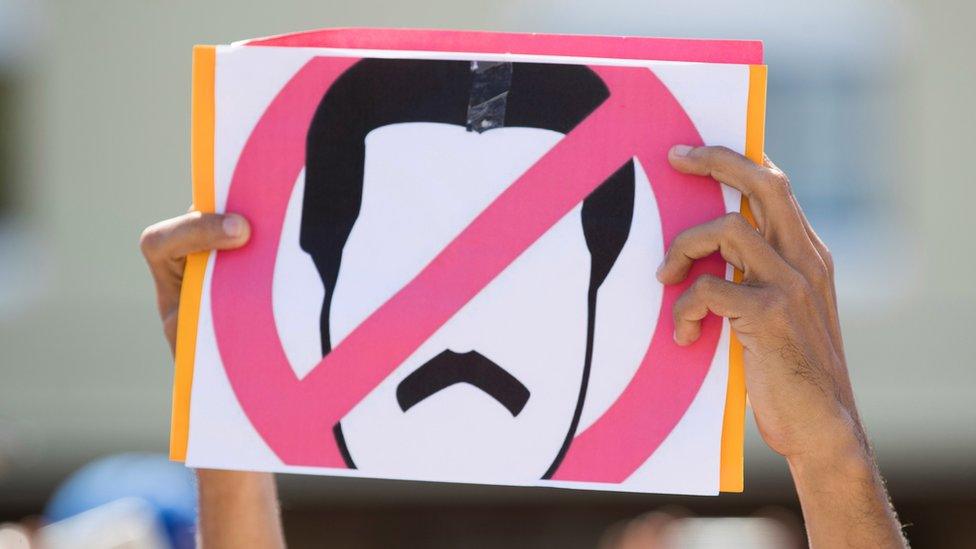
- Published23 January 2020

- Published12 August 2021
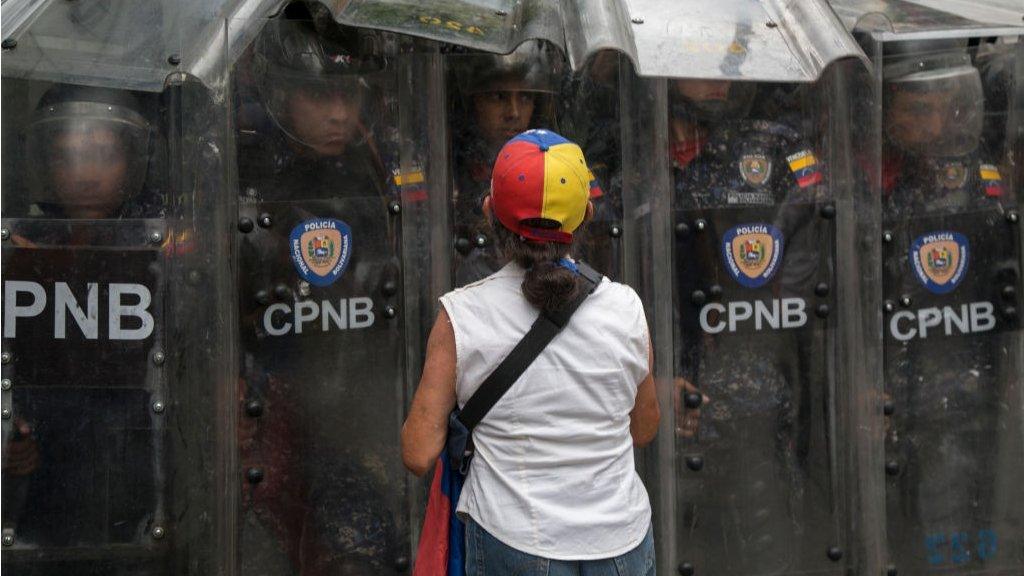
- Published30 December 2018
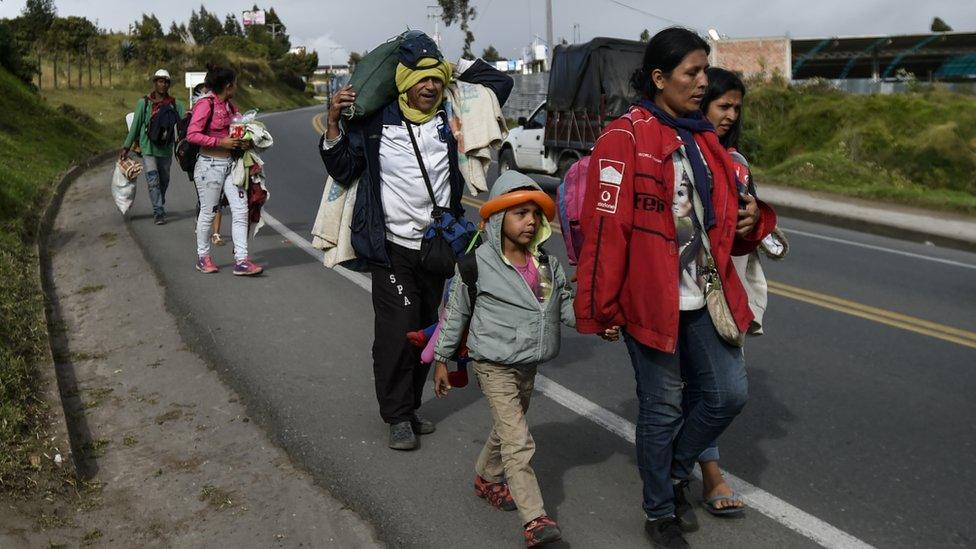
- Published10 August 2017
